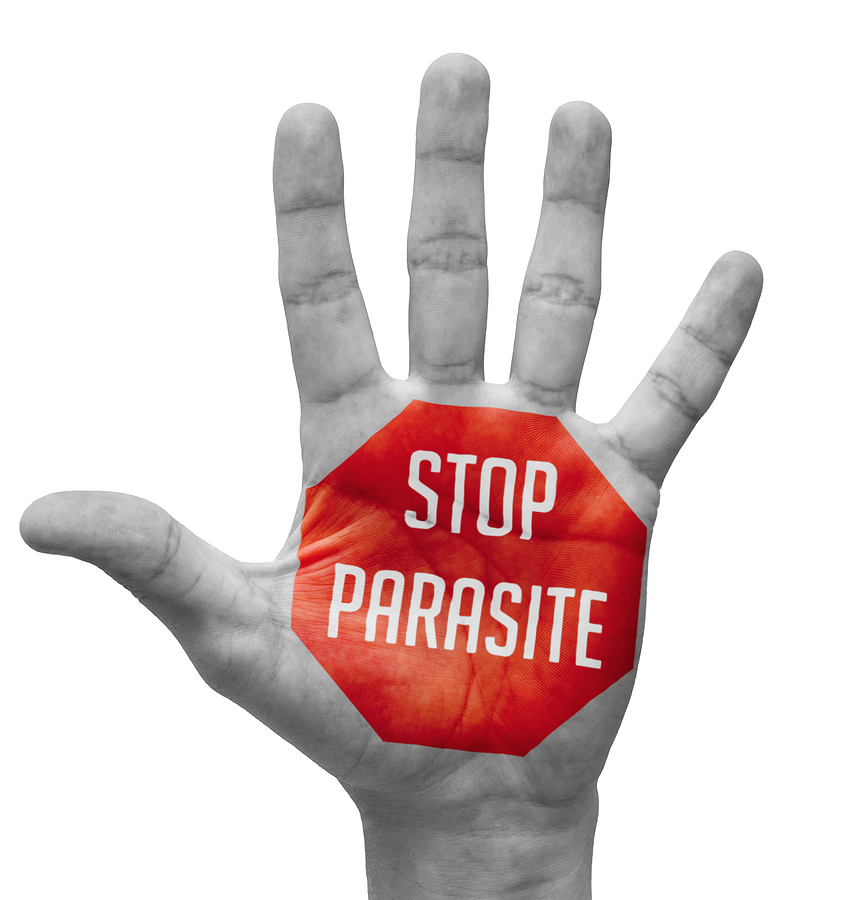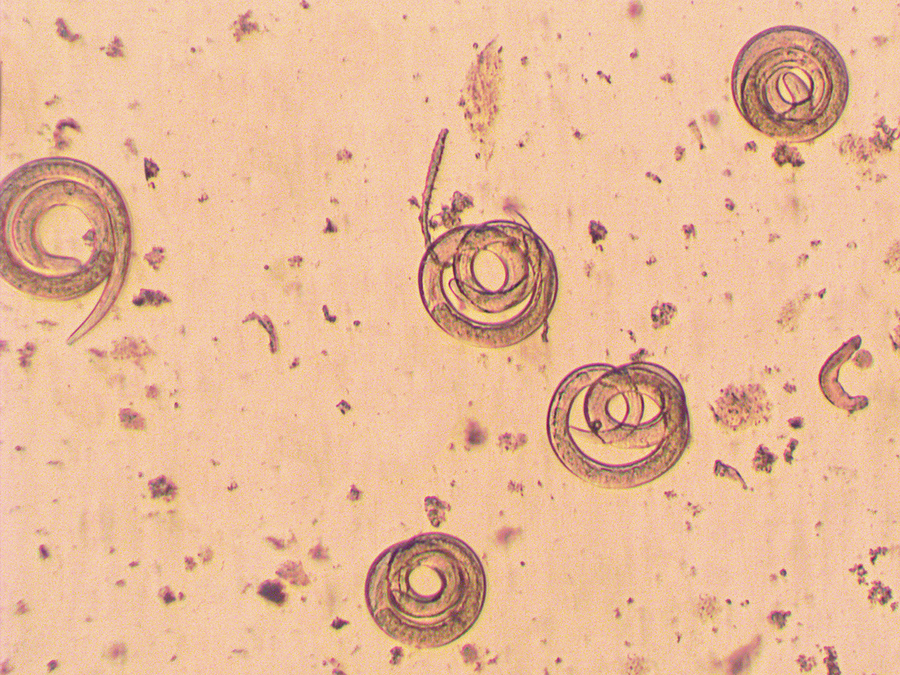- Make It Yourself Lavender Heart-Shaped Bath Bombs!
- 20 Things You Never Knew About “Down There”
- 12 Best Foods For Those Suffering From Arthritis Pain
- 12 Personal Hygiene Mistakes Almost Everyone Makes (Mom Never Told You About #4!)
- 15 Medicinal Plants And Herbs From The Cherokee People
- 12 Mind-Blowing Benefits Of Drinking Coconut Water During Pregnancy
- 12 Outstanding Winter Foods That Won’t Fatten You Up Like A Christmas Turkey
How To Kill The Parasites You Almost Certainly Have (No Matter How Clean You Are!)

Photo credit: bigstock.com
In the U.S., we often think of parasites as something that third world countries suffer from, but the truth is that parasite infections are actually at epidemic levels. Estimates are that about 85 percent of all Americans have some type of parasitic infestation. This is why we often stress about taking cleanliness measures after dealing with animals, being very choosy when going out to eat, and do regular cleansing to kill parasites every six months.
American doctors are not very well-trained in the treatment of parasites unless they have studied or spent a great deal of time abroad. Typically, it is only when doctors are presented with a horrific case of extreme parasitic infection will they finally admit that the client’s problem is from a parasite.
The amount of damage that parasites can cause is almost endless. Parasites are tiny enough to travel throughout the body via the digestive system or the bloodstream. Parasites are the root cause of numerous aches, pains, and other problems.
One of the main problems is identifying the culprit. Below is a list of common parasite infestations.
Pinworms
These are perhaps the most common infestation in the U.S. today. Pinworms live in the lungs and intestinal tract of the body. They are very, very small white looking worms that will crawl out of the anus at night to lay their eggs. If you become infected, you will scratch at this area because it itches like mad. The eggs are then lodged under your fingernails, which then are left behind every single thing you touch. Disgusting, isn’t it?
Roundworms
These live in the intestines and stomach. Humans become infested when they eat undercooked meats or contaminated foods. This is why it is especially important to wash your hands after touching any animal or after gardening.
Heartworms
Although it is rare for these to infest humans, it has happened. Heartworms are common in dogs but when they attack humans, they generally go to the lungs. You cannot get heartworms from your dog, however, as these are spread only through mosquitoes.
Tapeworms
These are perhaps the best known parasite. Tapeworms enter the body through undercooked pork, fish, or beef. These live in the lower intestinal tract and absorb most of the nutrients that you eat.
Threadworms and Hookworms
These can enter the body through the feet or from drinking contaminated water. These worms are so tiny that they cannot be seen. Even if they enter through your feet, they don’t leave any wounds or holes that you can see with the naked eye. The really ugly thing about these worms is that the eggs can incubate for up to 10 years.
How do you know if you have a parasitic infection?
Below is a list of the most common symptoms. Of course, if you do have these symptoms, they are typical of many other disease, but if your doctor has not been able to find a reason for your symptoms, you could have a parasitic infection.
-
- Facial swelling around the eye area (could be roundworms)
- Chronic diarrhea or constipation
- Wheezing and/or coughing followed by vomiting and stomach pain (possible roundworms or threadworms)
- Chronic, unexplained vomiting
- Anemia
- Abdominal cramps
- Heart palpitations (could mean hookworms)
- Unexplained dizziness
- Coughing up blood
- Extremely foul smelling gas
- Itching on the soles of the feet (sometimes accompanied by a rash or hives)
- Indigestion
- Difficulty maintaining a healthy weight (losing weight or gaining weight easily)
- Bloating
- Insomnia
- Loss of appetite
- Itching at night around the anus
Continue to Page 2

Photo credit: bigstock.com
Your doctor can help to identify the parasite you have, but most conventional doctors’ answer to this is to prescribe you anti-parasitic pharmaceutical drugs. These drugs are toxic. They are designed to kill the parasite but stop just short of killing you. This is why most people experience swelling of the hands, feet, lymph nodes, lack of coordination, problems with eyesight, and even convulsions are common when taking these types of medications.
Some of the best, natural ways of killing internal parasites are:
1. Wormwood or Black Walnut Hulls
Black walnut hulls or wormwood are known to kill adult worms. The typical dosage is 500 mgs of wormwood and black walnut hulls each day for a 14-day period.
2. Cloves
Cloves are a well-known remedy to kill worm eggs. A recommended dose for killing most parasitic worm eggs is half a teaspoon of cloves or clove powder for 14 days.
3. Diatomaceous Earth
This is probably the best way to naturally kill almost all parasites and their eggs easily and quickly. You need to be certain that you are buying food-grade diatomaceous earth. This is a completely natural pesticide that is harmless to humans and pets. It kills all types of insects, parasites, worms, and ants by dehydrating them. For this method, you take one tablespoon of diatomaceous earth each day for seven days. Don’t use industrial grade diatomaceous earth as this is often used for swimming pool water filtration and can contain other chemicals. You should also avoid rubbing diatomaceous earth on your hands or other parts of the body as it can have a very drying effect on the skin. Diatomaceous earth contains selenium, which absorbs heavy metals and helps to remove them from the body, so this means that you can kill parasites while detoxifying from heavy metals at the same time. Be sure to drink plenty of fluids while taking diatomaceous earth, as it can dehydrate you as well!
No matter which treatment you decide to try, keep in mind that sometimes you will feel worse for a day or two before you start to feel better. This is because as the parasites die, they release toxins from their bodies. Sometimes worms will attempt to escape the poison by burrowing deeper into the intestines and tissues. This can cause some cramps and sharp pains. Even after the parasites are dead, your body still must flush them out.
READ ALSO: How to Tell if You Have Parasites and What to Do About Them
So, while some cramping, fatigue, and feelings of grogginess are to be expected, they are short-lived. Eat a wholesome, natural diet and when the process has finished, you should find that you are feeling better than ever.
References:
































